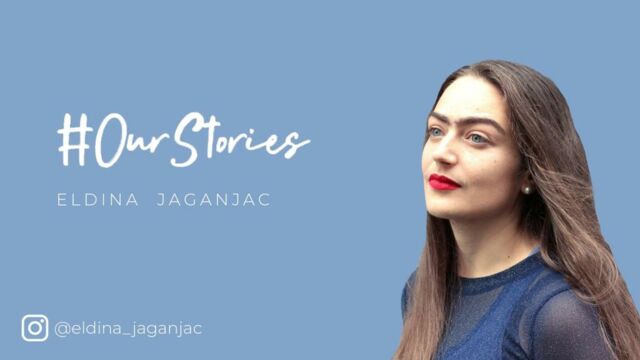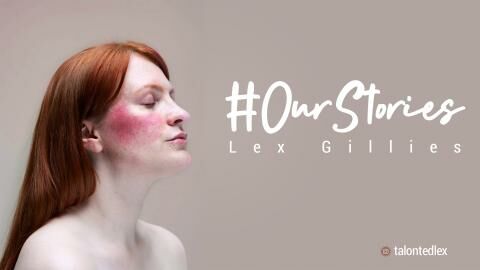Strange is the notion we have collectively built around body hair—more specifically—the hair that grows on women’s bodies. We use the adjective strange, in this context, because of the inherently and scandalously unjust divergences that exist between the way society looks at a man’s body versus that of a woman’s.
Discover our latest podcast
We have been made to believe that hair is only acceptable on certain parts of the body. The moment a woman decides to transgress this unwritten rule, all hell breaks loose. But for some, these unwritten rules were meant to be broken.
In recent times, the reemergence of the body positivity movement has paved the way for other categories of inclusive movements to take centre stage.
Case in point, body hair activism has made the rounds on social media with the aim to deconstruct pop culture’s obsession with women’s body hair or lack thereof.
Perhaps even more subversive than having a woman decide to not shave her legs or armpits is a woman who decides to keep her facial hair intact.
Mexican painter and feminist icon, Frida Kahlo, was one such woman who did not curb her self-expression for the sake of fitting in. Instead, she flipped the bird to society’s standards of what a woman should or should not look like.
Today, we have Eldina Jaganjac, @eldina_jaganjac on Instagram, walking us through what the #unibrowmovement means to her and how to live authentically no matter how you decide to outwardly express yourself.
Eldina, how were your formative years like?
I grew up in a town in the south of Denmark with about 70 thousand inhabitants. My formative years were very hard in a way because I kind of always felt out of place where I lived and I also did not have that many friends. I had a hard time relating to people and, early on, I did feel there was pressure to look or be a certain way. If you didn’t abide by certain standards you were targeted and asked to find a way to fit in.
I recall kids calling other kids ‘fat’ at the age of about eight or nine. There was this idea about how you were supposed to look like that was omnipresent very early on. So when I think about my formative years, I think about how I internalized what I was being told what the right way to look like or how a woman had to look like.
What is your relationship with the #unibrowmovement?
I use the hashtag to bring more visibility to people who have unibrows or big eyebrows. I used to feel as though I was the only person with visible body/facial hair. I also remember my friends complaining about how much body hair they had, and how they would try to convince themselves that they were the hairiest. So, the reason I use the hashtag is to help normalize the concept of body hair and show others that it’s completely natural; it shouldn’t matter if you have a lot or a little bit of body hair.
How did you first become acquainted with the idea of body positivity?
I don’t think there was ever a precise point in time, but I do think there was a natural development to it. I noticed constantly thinking to myself why I wasn’t skinny enough or why I wasn't tall enough or why it was that I had so much body hair. Then, at some point, I just had enough and asked myself: ‘Why do I want to tell myself bad things about my body?’
I remember a friend asking me, years ago, in response to me talking about some of my insecurities: ‘Why do you feel the need to look like somebody else? Why can't you look however you look?
She asked me that, because back then, I used to dye my hair and my eyebrows blonde. I also think that for me, when I lived in Denmark, I was subconsciously trying to find ways to fit in or look more ‘Scandinavian’ and my friend noticed that and confronted me about it. And so that also got me thinking: ‘Why am I comparing myself to other people; why can’t I be positive about the way that I look?’
Do you think that Denmark’s standards of beauty affected the way you saw yourself?
I’m from southern Europe originally, so I do look different to people from Denmark in general. I do think that subconsciously it is something that has affected me in my life. When I was in my 20s, I would think to myself: ‘Oh my God, the norm I see around me does not reflect what I actually look like.’
But living in other parts of the world, like when I was in New York for instance, allowed me to see variety and helped me embrace the idea that I did not have to look Scandinavian or a certain way in particular. I think it simply comes down to the fact that we can’t all look alike–we’re not supposed to look the same. I don’t believe that… that would be so weird. For me, being body positive is embracing that we are all different and that everything can be beautiful.
Were you apprehensive about letting your hair grow at the beginning?
In my case, it wasn’t like I was plucking, and then I decided one day to just suddenly stop plucking. It was kinda more of a back and forth thing. Even now, I’m not against plucking or shaving or hair removal at all. I wouldn’t even say that I have stopped or not stopped. It’s more like: ‘I’ll do whatever I feel like I want to do with my body.’ I just wish it wouldn’t be a topic or a theme, and that people could be more chill about what others do. I’m not advocating against hair removal.. if it’s practical and if you want to, then why not do it? But it shouldn’t be an unwritten rule for women that you have to pluck your hair. There are already too many rules.
What was the response of your immediate surrounding when you were getting all this media attention from deciding to stop removing your hair?
My family’s response from the media attention is that they think it’s completely absurd. It’s funny because if we think about it, no one would ever think of asking a guy why they’ve decided to grow out their beard or to completely shave it off but the double standard in women is very present. I’ve counted and I have exactly 7-8 extra hairs in the middle of my eyebrows and that has somehow shocked the world!
Do you have a hard time with how some people may look at you?
It’s not so much the looks that I receive that I think are the problem, it’s more the way we internalize those looks, and how they affect the way we start policing our own bodies which in turn makes women become afraid to go out without having shaved their legs.
Whatever people can do to you, you can do to yourself much worse because that guy who’s gonna stare or say something stupid to you is gonna be gone in the following two minutes, but you’re with your own mind all the time. If you internalize that and you stare at yourself through his eyes, that’s a much bigger problem.
What does Eldina do when she has a bad day?
First of all, you have to know that having bad days is perfectly normal. I don’t believe in fake positivity or ‘only good vibes’ because no one only has good vibes—being sad is part of life. I set goals and veer my mind in a different direction so as to focus on what I can do instead of allotting that time on the negativity.















